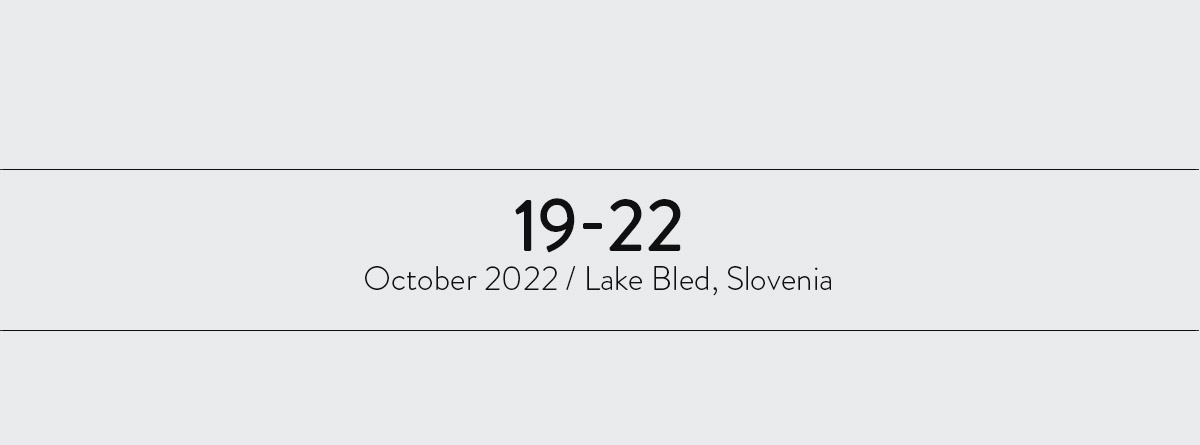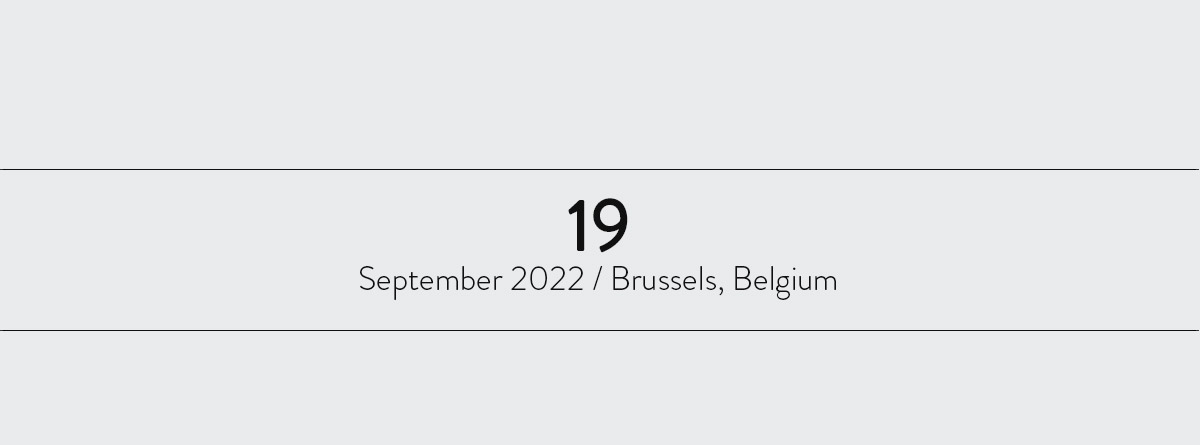Author: administrateur
05 Juil The international Conference CAETS 2022
"Breakthrough Technologies for Healthcare"
14 Mar Improving cancer screening in the European Union
Organised cancer screening programmes save lives. The earlier a cancer is diagnosed, the greater the chances of treating it successfully and straightforwardly.
16 Déc EVENT – FRONTIERS OF ENGINEERING 2022
The 2022 EU-US Frontiers of Engineering symposium will be hosted by the Slovenian Academy of Engineering (IAS) organised in Lake Bled, Slovenia from October 19 to 22, 2022.
15 Déc EVENT – ANNUAL CONFERENCE 2022
From open-science to innovation – An Engineering challenge for Europe.
01 Déc Generation Equation
Posted at 15:34h
in - Classification of publications - All, - Classification of themes - All, - Member Academies - All, Academic report, by a Commission or a Working Group, Demography, Education, Training, Employment, Other, Royal Swedish Academy of Engineering (IVA)
0 Comments
Royal Swedish Academy of Engineering (IVA) 2021What motivates young people to want to learn? What kind of knowledge creates meaning - both for the individual and for building a sustainable and democratic society? With Generation Equation we aim to investigate Swedish students' attitudes towards knowledge and learning, with a particular focus on science, mathematics and reading. Generation Equation is produced by IVA's Future Knowledge Society project, whose vision is a society where knowledge empowers people to build a better world for all. The report is based on both international and Swedish studies. It is divided into three main chapters: how enjoyable or interesting young people perceive learning to be; how they perceive their own abilities and situation, for example in relation to self-confidence and stress; and how they see the benefits of what they learn for the future. IVA concludes by identifying several themes and challenges where IVA finds a need for future discussion. One example is whether a broader perspective on possible educational and career paths for young people can be mobilised, in the light of society's major common challenges and rapid developments. The report is available in Swedish.
01 Déc Agenda for sustainable water supply
Posted at 15:31h
in - Classification of publications - All, - Classification of themes - All, - Member Academies - All, Academic report, by a Commission or a Working Group, Energy and Climate Change, Environment, Other, Royal Swedish Academy of Engineering (IVA)
0 Comments
Royal Swedish Academy of Engineering (IVA) 2021Access to clean water is a challenge for sustainable development in Sweden as well as globally. IVA's Sustainable Water Supply project addresses the following issues related to water supply of freshwater in Sweden - climate change, water supply in urban environments, water cycles and water management. Ten areas where challenges to the common water resource exist in Sweden today are identified, including the lack of time perspective in planning, and managing water issues. Several keys to more effective water management and water supply follow, including the need for collaboration and synchronisation between more stakeholders going forward. IVA concludes with ten policy proposals on what should be done in Sweden to meet current and future water challenges, including developing knowledge and models on how climate change affects water resources, giving river basins a central role in planning, and initiating Water Plan 2045, a national long-term strategy for water resource management. The proposals are presented in a ten-point agenda - the Agenda for Sustainable Water Supply. The report is available in Swedish.
29 Juin Energy transition needs to accelerate urgently, says EU’s Scientific Advice Mechanism
There are many possible pathways towards a carbon-neutral future. Achieving it by 2050 is possible, but this requires urgent action.
14 Juin Technology Outlook 2021
Posted at 15:14h
in - Classification of publications - All, - Classification of themes - All, - Member Academies - All, Academy’s advice and position paper, Research, Technologies, Innovation and Employment, Society and Technology, Swiss Academy of Engineering Sciences (SATW)
0 Comments
Swiss Academy of Engineering Sciences (SATW)
June 2021
Authors: Claudia Schärer et al.
Main themes: early identification, technology
Nature of publication: study
SATW’s key mission of early identification comprises the detection, description and assessment of technologies that will be significant for Switzerland’s economy and society in coming years1. Every two years, these activities are wrapped up in the publication “Technology Outlook”, which in 2021 has reached its fourth edition. The Technology Outlook 2021 builds on the 2019 edition. The technologies described back then have been newly assessed with regard to their technological maturity. Those having a time horizon of less than three years till market maturity have been excluded. In collaboration with SATW’s two early identification bodies, we have identified new relevant technologies that will gain significance in Switzerland and that correspond to the targeted time horizon of at least three years until product maturity. The Technology Outlook 2021 presents a total of 45 technologies and areas of application. For this edition, SATW has again collected quantitative data on the different technologies and used the four-quadrant diagram “Economic significance of technologies for Switzerland / Available research competence in Switzerland”. This allows for the first time to identify certain trends.
14 Juin Autonomous mobility
Posted at 15:13h
in - Classification of publications - All, - Classification of themes - All, - Member Academies - All, Mobility and Transportation, Other publications, Society and Technology, Swiss Academy of Engineering Sciences (SATW), Urbanism and Housing
0 Comments
Swiss Academy of Engineering Sciences (SATW) 2021The future aim of highly and fully automated vehicles with corresponding drive systems is to free drivers from often tedious tasks, eliminate them as a source of danger, and make more efficient use of infrastructure. They require an almost unimaginably high level of digitalisation, artificial intelligence usage and innovative networking to enable extremely complex systems to emerge. Autonomous vehicles are currently at an early stage of development, planning or even testing. Details of initial authorisations and commercial availability are still far off: sceptics dismiss this as just hype, proponents talk about it soon becoming a reality. This is supported by billions in investment from large countries such as the USA, China, and Germany, as well as gigantic technology and service conglomerates such as Alphabet-Waymo, Uber and leading automobile manufacturers. A realistic timeframe seems to be 20 years until highly automated vehicles penetrate the market, with at least 40 years for fully automated versions. Autonomous shuttles, taxi fleets, computer-guided lorry convoys and traffic on the outskirts of major cities will most likely lead the charge. The small brochure provides a detailed overview of the current challenges on a technical, legal, environmental, and social level, and shows some potential benefits.








